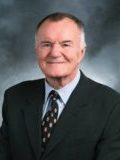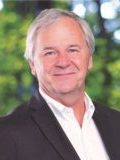
Eric Freeman,
Founder and CEO,
Liberty Commercial Finance
Over the last two years, the skills of independent equipment finance companies have been tested. To learn about the strategies independents are using to succeed, Monitor spoke with leaders from Liberty Commercial Finance, GreatAmerica Financial Services, Financial Partners Group and Verdant Commercial Capital.
What was the biggest challenge your company faced in last year and how did you overcome it?
Eric Freeman: [A] tie between supply chain issues and competition. There’s not much we can do about the supply chain issues unfortunately, but to overcome stiff competition, we’ve continued to do what we say we’re going to do to earn our clients’ trust.
Tony Golobic: Without question, COVID-19 and its consequences were our greatest challenge last year, especially the way it changed work-from-home expectations. While there are a lot of work-from-home positives, there are also some issues that can potentially impact organizational culture. I think we at GreatAmerica are making encouraging progress in being sure our organizational culture remains strong.

Jeff LaLima: Keeping pace with 130% growth. We couldn’t scale fast enough. Leadership’s focus quickly became making sure we had the right talent and pieces in place to keep up.
Michael Rooney: The biggest challenge for Verdant in 2021 was the usually simple act of planning. We just didn’t know when or if employees would be returning to the office and if planned trade shows would happen. The economy felt strong, but was that feeling real or an illusion? We compressed our planning to 30-day cycles and focused on the immediate. In a world where so much is out of your control or your vision, sometimes the best thing to do is just focus on doing the best you can every day, then wake up and do it again.
The Federal Reserve is poised to increase interest rates in 2022. How do you believe this will impact the cost and availability of capital for independents?
Freeman: We’re already seeing this with a private securitization we’re working on right now (rates have jumped 75 bps since starting documentation). We feel good about being able to pass on the majority of increases, as there will be an equal and likely bigger increase from banks who have been giving money away for the last couple of years. Overall, I view the rising interest rate environment as a net positive for Liberty and other

independents.
Golobic: Everyone’s cost of funds will increase. However, independents’ cost of funds will be more affected than those of bank affiliates who partially rely on bank deposits to fund their operations. There still is huge liquidity in our economy, so the banks right now don’t see a need to increase the rates they pay on their deposits. Over time, this will change. At this time — and for some time to come — I don’t see any marked decrease in availability of capital for independents.
LaLima: We’ve been at this for 20-plus years, so we’ve seen the ebb and flow of interest rates. It will have an impact, sure, but rates are still low compared to 2008. At the end of the day, our focus will continue to be on the customer and getting them the best outcome possible.
Rooney: Rates need to go up. The extremely low rates our industry has lived in these past

five to seven years aren’t normal. I think we’ll do even better in a rising rate environment. The value for customers to lock in a fixed rate over years and possibly avoid these continuously rising rates will make equipment financing look even better. Independents, like all providers of liquidity to businesses, make money on margins and as rates go up to us, the rates will also go up to our clients. I also see the availability of capital increasing for independents.
What is the biggest benefit of being an independent finance company today?
Freeman: Being able to add real value to our clients rather than just providing low rates. Most credits and/or collateral seems to have some sort of wrinkle, so rather than saying no, it feels good finding a way to say yes.
Golobic: There are some good reasons why independents can effectively compete against bank affiliates: speed of decision making, ability to create custom tailored solutions that address the needs of our customers, independents’ entrepreneurial drive and being relatively free from bank regulatory bureaucracy all create a powerful advantage for independents.
LaLima: As an originator, it’s our flexibility in financing options and speed to market. Our ability to be nimble while looking at the full scope of finance options available is what customers want. FIs are starting to recognize that and it’s leading to more partnerships and collaborations focused on what’s best for the end customer.
Rooney: Business is changing faster today that at any time in our past. Being agile enough to adapt to these changes and take advantage of them is what being an independent finance company is all about. Most people who work at independents feel more empowered, more connected to their customers and more optimistic that they can respond in a manner that supports their customers’ business[es]. I think independents have more fun too.
Many independents have been acquired over the last year. What’s your take on the current landscape and how do you expect the private, independent group to look next year?
Freeman: There is a tremendous amount of M&A going on in the independent space right now, and I am very interested to see how the dust settles when all is said and done. Feels like the void created when GE Capital exited the space is finally getting efficiently filled, which will likely lead to some consolidation in the coming years, as well.
Golobic: Independents have and will always be attractive acquisition candidates. After they are created, they develop a successful business model and often sell. Then the cycle starts again. I don’t think last year was markedly different from prior years.
LaLima: It’s customer driven. We’re seeing more collaboration and partnerships to support customer needs and it’s fantastic. There’s been this rapid acceleration in adjacent finance industries with the boom of fintechs solving for all these traditional pain points. People are starting to recognize the natural collaborations that exist between originators and FIs and we’re seeing partnerships materialize as a result.
Rooney: Independents being acquired for healthy multiples is a very good thing for all independents. It’s a clear sign that what independents are doing is highly valued and unique enough that someone wants to pay a big price to acquire [them]. The independent landscape is very healthy and, as companies get acquired, new and even more creative independents will take their place.
What is your outlook for equipment finance in the year ahead given the macro forces at play (geopolitical, pandemic, etc.)?
Freeman: I’m very optimistic for 2022. [It] feels like a lot of the headwinds are overhyped by the media, which is evident in great economic numbers for 2021 despite all the doom and gloom headlines. Most people and businesses seem to just be tuning it out and focusing on their lives and businesses, which is exactly what we all need to be doing.
Golobic: We expect the supply chain/equipment back-order issues to affect our industry for a material portion of the year ahead. Additionally, we expect to see increased government regulations on the horizon. While this may have some positive impact, the consequences will mostly result in increased bureaucracy and [a] higher cost of doing business. However, all in all, I am strongly positive on the future of the equipment finance industry. After all, we perform — and perform exceedingly well — a very important role in our economy.
LaLima: Culture and society have changed, and demands aren’t the same as they were 20 to 30 years ago. Consumers have demands of different industries today, medical aesthetics being a major one. Consumer need is there and equipment needs to meet that demand will remain necessary.
Rooney: After these past two years, the message to all businesses is that you never know what’s around that corner, so you better have your company prepared to be agile, think quickly and have contingency plans. We had the pandemic; we now have inflation and supply chain issues, and we might have a serious event in Ukraine. What we [have] learned during COVID is that we are a smart, adaptive and resilient industry, and we’ll find a way. I’m optimistic.
Any final thoughts?
LaLima: It’s an exciting time to be an originator, as partnerships, technology and overall approach to supporting customers accelerate. We look forward to what’s ahead.
Rooney: After spending my early career as an independent, the middle of my career as a banker and now the later part as an independent again, I can assure you, I’ll take the independent experience all day long.
No categories available
No tags available